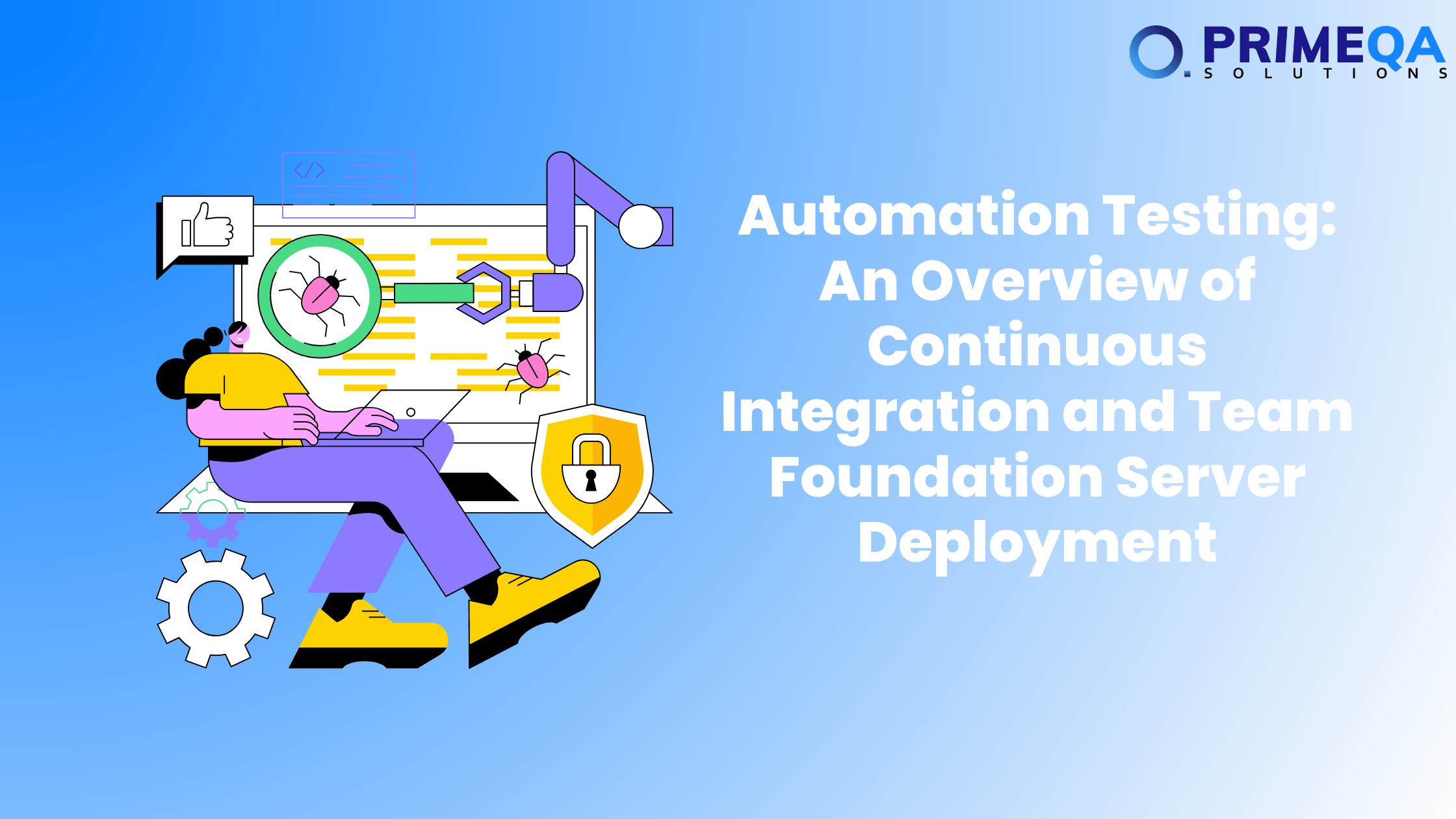It has become essential to maintain quality in the ever-evolving and dynamic field of software development while meeting the deadlines for software delivery. Such a balance is the product of automation testing in conjunction with continuous integration and deployment (CI/CD) deployment techniques. Team Foundation Server (TFS) is one of the standout technologies on the market that teams can use to implement these integrations. This post will discuss what automation testing is within the development process and what you need to consider while preparing CI/CD pipelines using TFS.
Understanding automation testing
What is Automation Testing? In a nutshell, the automation testing is the use of special tools to perform pre-made scripts in software applications. There are several benefits from automation testing over manual testing:
- Speed: Much of the time, tests that are automated succeed much faster than manual tests for the same changes of code.
- Consistency: Automated tests are less susceptible to human error since they repeat the same steps every time they run.
- Reusability: The scripts written for test cases can be reused across different environments and configurations, saving time and effort.
- Scalability: Testing automation can scale easily to accommodate the increasing complexity of the application as the software grows.
Continuous Integration and Deployment:
Continuous Integration (CI) is the process of integrating code with a shared repository by several team members in a regular basis—for example, several times a day. This integration triggers automated builds and tests that enable a faster early detection of integration errors. Continuous Deployment (CD) takes this one step forward by automatically deploying code changes to production or staging environments after all tests have passed. CI/CD pipelines automate the development process by streamlining tedious tasks and reducing human interaction. This reduces the latency in delivering and delivering at high rates, while keeping defects at a minimum, making it more user-friendly.
Implementing CI/CD with Team Foundation Server
The use of Team Foundation Server (TFS) now part of Azure DevOps gives in-depth tools used in setting up automation testing within it. Therefore, set it up as shown below.
Version Control: Use the version control system of TFS to control your code repository. Developers can check in their code changes, which can run automatically the CI/CD pipeline.
Build Pipeline: Create a build pipeline in TFS for automating the building process. Configure the pipeline to pull the latest code from the repository, compile it, and run automated tests.
Test Automation: Integrate your preferred test automation framework, like Selenium for web applications or Appium for mobile applications, in your build pipeline. Write test scripts with automation that cover the core functionalities of your application.
Continuous Integration: Set up the build pipeline to automatically trigger whenever new code is pushed into the repository. This means that with every integration of new code, it will be vetted by running automated tests.
Deployment Pipeline: Set up a release pipeline in TFS to automate deployments. The pipelines will comprise stages to deploy to different environments (development, staging, production), and the automatic trigger of deployment will be triggered after successful completion of the build pipeline.
Monitoring and Feedback: Keep track of CI/CD pipelines within TFS to monitor progress in builds and deployments. Instant feedback due to build failure or test error comes through while referring to all issues, giving way to a prompt and effective resolution of all problems.
The following steps will help teams establish a robust CI/CD workflow with automation testing using Team Foundation Server. This approach accelerates the process of software delivery, enhances code quality, and supports collaboration among the team members.
Impact of Docker on the Current Software Development
The use of Docker in current software development has changed many things. It accelerated software delivery, increased agility, and improved scalability and reliability. Applications that developers containerize can now be developed, tested, and deployed more quickly. This reduces time-to-market and increases the productivity of developers. In addition, the portability and consistency of the Docker framework ensure that deployment is less of a hassle as organizations navigate cloud-native architectures or microservices-based applications.
Conclusion: Nowadays, automation testing is a fundamental practice in software development teams wishing to deliver products of high quality as quickly as possible. Team Foundation Server gives a potent space to have CI/CD pipelines implemented and get automated testing integrated into the development process. When a team embraces automation and uses TFS’s capabilities, it improves productivity and rapidly deliverable software that performs well.







